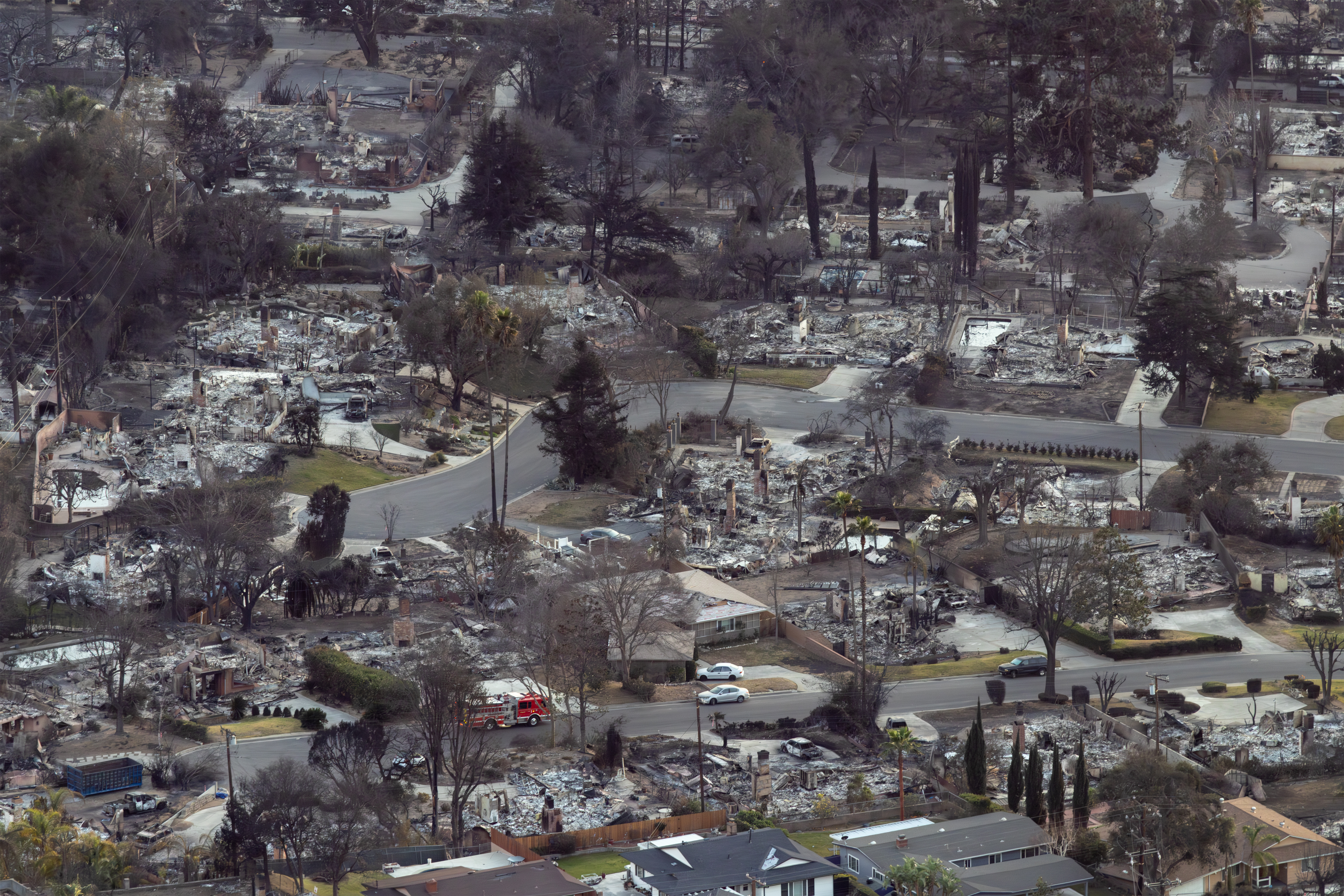Some of the resources helping Los Angeles fight the wildfires come from places you might not expect, such as many of the fire departments on tribal reservations across California. NBC 7’s Shelby Bremer has the story.
As wildfires continue to burn in Los Angeles, support, resources and additional firefighters from all over have poured into the city. That includes from some likely lesser-known fire departments: those on tribal reservations across California.
“It’s probably the most important thing we do,” said Pechanga Fire Department Chief Jason Keeling. “No community can respond and mitigate emergencies on their own.”
Relevant content:
Keeling said the Pechanga Fire Department, on the Pechanga Reservation in Riverside County, is a member of the state of California’s mutual aid system. As such, ahead of the Santa Ana wind event last week, their 30-member team was already in position to respond to any fires in the region.
Get top local stories in San Diego delivered to you every morning. Sign up for NBC San Diego's News Headlines newsletter.
“For many, many years, we have responded to off-reservation incidents to support other communities in need when they call for help,” Keeling said.
So when the call from Los Angeles came in on Jan. 7, the Pechanga Fire Department sent an engine and four crew members to the Eaton Fire in Altadena, and several members to the Palisades Fire as well.
“They’re seeing a lot of destruction, you know, entire communities that have been devastated,” Keeling said. “It’s just really a catastrophic scene for them.”
Keeling said there are 26 tribal fire departments across California. Eight are assisting in L.A.: Pechanga, Rincon, Soboba, Pala, Yocha Dehe, Viejas, Barona and San Manuel.
While those departments may be governed by their tribes, their mission is the same as any others.
“Tribal fire departments are no different. We stand foot by foot with our local, state and federal partners throughout the state,” Keeling said.
“Our training, our education, our experience is the same standards that you would see with a city or state or federal fire department,” he continued. “The only difference is that the departments are supported and funded through their tribes, you know, in their economic development. That's how they provide those services to their communities.”
But the tribes aren’t always highlighted in rescue and recovery efforts. When leaders tout state, local and federal partners, they’re often missing that key source of aid.
“I don't think it's intentional. I think a lot of the times it's just an oversight," Keeling said, adding that tribal departments would ultimately like to see more acknowledgement of their participation. “We're relatively new historically, but the tribes have been doing this for many, many years, supporting in emergencies throughout the state and the country.”
Keeling said Pechanga has sent firefighters border to border in California, and rescue teams even farther: to Hurricane Katrina, Puerto Rico, Hawaii, among others.
And that mutual aid goes both ways.
“We had the Pechanga Fire here in 2000, burned over 60,000 acres here, and we had L.A. County, L.A. city fire engines parked right here at our fire station supporting us and protecting our community,” Keeling said.
So they know from experience that firefighting doesn’t begin with the first spark – but in the preparations long before. The department’s fuels management team works full time to maintain the reservation year-round, clearing dry vegetation and hardening homes to lessen the threat, and in ways that align with the tribe’s practices.
They’re hoping to ward off any future disasters as their colleagues proudly battle one in the present.
“I think we're grateful that we're able to help,” Keeling said. “We're here to do the job, so that's what we want to do. If we're available, and we are fortunate enough to have our tribe and our tribal leaders support us supporting that system, then we want to go help.”
Pechanga said they also donated $500,000 to relief efforts for the L.A. fires, contributing to the American Red Cross, World Central Kitchen and the L.A. Fire Department Foundation.



